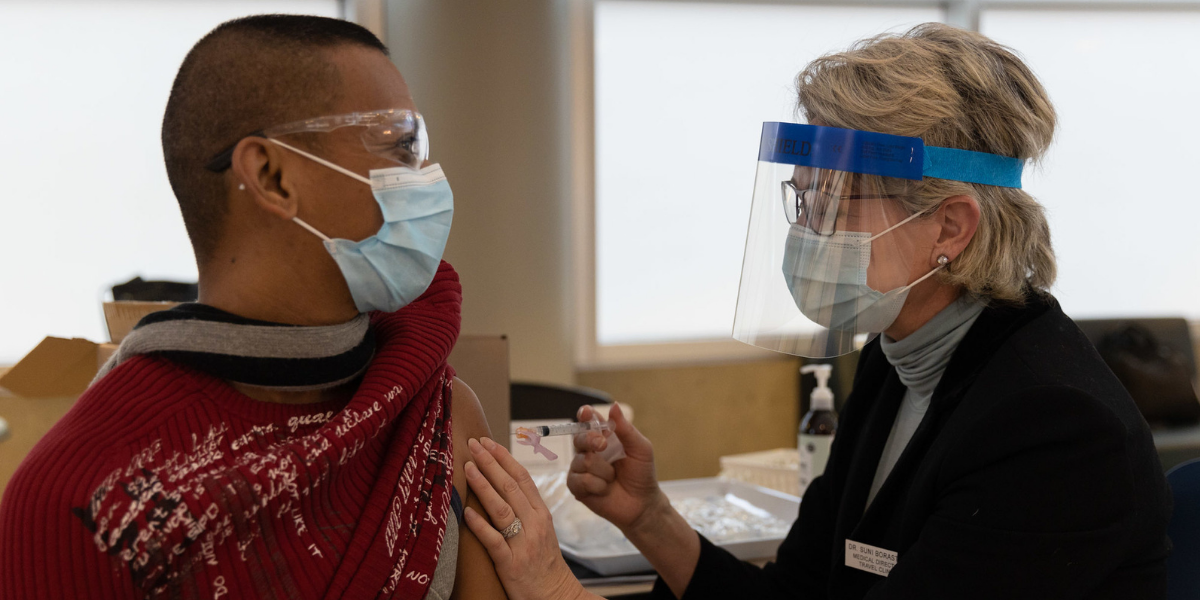According to CIDSE members an equitable distribution of vaccines is a matter of justice and solidarity in the spirit of Fratelli Tutti.
While the Covid-19 pandemic is still far from being over, the vaccines represent the light at the end of the tunnel and a concrete hope to put an end to the crisis.
During the pandemics, we learned that we are one human family and we must work together to overcome this crisis; we are all interdependent and vulnerable. However, the distribution of vaccines is following a different logic and richer countries are the first ones in line.
Studies show that 13 percent of the world’s population has secured about half of the Covid vaccines. On the other hand, it is expected that in nearly 70 poor countries only ten percent of the population can be vaccinated in 2021.
Many have already spoken in favor of a global distribution that looks beyond national interests. The World Health Organization (WHO) urged countries fighting over the vaccine supplies to think about the situation of health workers in less developed countries. The Vatican issued a statement to “remind world leaders that vaccines must be provided to all fairly and equitably, prioritizing those most in need.”
CIDSE members work with partners around the world who have seen the effects of the global health crisis on the most vulnerable. In many countries the pandemic led to a standstill of work, production of and access to food and medicines as borders were closed. As the majority of people in vulnerable countries work in the informal economy, consequences include immediate redundancy, loss of income and livelihood. Additionally in this situation, the longer we fight over who gets the vaccine, the longer the pandemic will continue to threaten the lives and livelihoods of the most vulnerable around the globe.
KOO, Austria, highlights how the lack of access to the vaccine will dramatically worsen global inequality in the long run. Vaccines must therefore be available to health workers and people at risk around the world. We can take inspiration from Fratelli Tutti when fighting the pandemic, in which Pope Francis urges politics and business to focus on the common good and solidarity. “Solidarity means much more than engaging in sporadic acts of generosity. It means thinking and acting in terms of community. It means that the lives of all are prior to the appropriation of goods by a few. It also means combatting the structural causes of poverty, inequality, the lack of work, land and housing, the denial of social and labour rights” Fratelli Tutti, 116.
Broederlijk Delen, Belgium, is supporting the campaign “Non Profit Pandemic” , a European citizens’ initiative to ensure that the European Commission does everything in its power to make anti-pandemic vaccines and treatments a global public good, freely accessible to everyone.
Pirmin Spiegel, Misereor (CIDSE’s German member) Director General, stresses that there is an urgent need for the COVAX initiative by the WHO to be financially supported in a way that nationwide vaccinations can also be initiated quickly in countries with a high poverty rate. He also advocates for a temporary suspension of patents on vaccines so that they can be produced and purchased in a timely manner.
According to FOCSIV, (CIDSE’’s Italian member), who launched an appeal with Caritas italiana, priority to the vaccine should be given to the poor. They argue that the impact of the virus produces health, psychological, social, economic and political consequences, unfortunately amplified for most fragile social groups and poor countries.
Caoimhe De Barra, Trócaire’s (CIDSE’s Irish member) Chief Executive, points out that many of the world’s poorest countries won’t be able to roll-out a vaccine to their general populations until 2022 or even 2023. Despite the efforts of the global COVAX initiative, wealthier countries have the resources to secure bilateral deals with pharmaceutical companies and they will get their populations vaccinated first, leaving the poorest countries at the bottom of the queue. She explains that Tróocaire has worked in Somalia for over 30 years and are the only healthcare provider in Gedo district. Here they don’t anticipate receiving any vaccines, not even for doctors, nurses and midwives, until well into next year.
In the Netherlands, Vastenactie, (one of CIDSE’s Dutch members) reminds us that while we can count for people in the Netherlands to be safely vaccinated in a few months, we shouldn’t close our eyes to what is happening in the rest of the world. If there is one thing Corona has taught us is that we are all connected and dependent on each other and ultimately, if we turn away now, we will be presented with the bill later.
Maryknoll (CIDSE’s U.S. member) calls on the USA to join the COVAX initiative. The majority of low- and middle-income countries will get the vaccine through GAVI’s COVAX Advanced Market Commitment (AMC), a global plan to ensure fair and equitable access to vaccines, which the Trump administration refused to join, partly due to its connection to the WHO. President-elect Joe Biden has not officially committed to joining COVAX but his team has reportedly met with those leading the effort.
Manos Unidas (CIDSE’s Spanish member) flags that the lack of access to vaccines against Covid-19 could become another source of discrimination and injustice for millions of people.
They recall the words of the Pope: “I renew the call to policy makers and the private sector to take the appropriate measures to guarantee access to vaccines against Covid-19 and the essential technologies necessary to care for the sick.” “In the face of a challenge that knows no borders, no barriers can be erected. We are all in the same boat. ”
Photo: Flickr.com/Province of British Columbia

